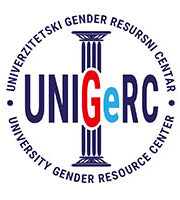Sarajevo’s Third Gymnasium, in collaboration with the Music High School, carried out a series of activities as part of the “16 Days of Activism Against Gender-Based Violence” campaign, organized by the TPO Foundation within the UNIGEM project.
The campaign, under the school project name “Empathy – Responsibility – Solidarity” (supporting victims and survivors), began on November 25 and ran until December 10. During this period, a variety of activities were carried out involving students, teachers, and staff.
The first activity was an exhibition of posters titled “Help for Victims and Survivors,” displayed throughout the campaign in the hallway of the Third Gymnasium. Students used the posters to express their views on gender-based violence, its causes and consequences, the importance of recognition and reporting, as well as the role of empathy and art. At the same time, five students from the Music High School—Lejla Hiseni, Asja Ovčina, Mediha Hećimović, Zara Čengić, and Dalila Jusufović—organized a poster exhibition on the topics of “Gender-Based Violence” and “The Importance of Music Therapy.”
Next, a screening of the film “Dad Walks Out on Baby’s Gender Reveal” was held, followed by a discussion on gender-based violence, recognizing it, and how families, schools, peers, and society can contribute to change.
A lecture and workshop on “Music Therapy/Sound Therapy” by Alma Tuzli Lepir was the final activity organized for the students of the Third Gymnasium. During the lecture/workshop, students had the opportunity to learn about the significance of music and sound in therapy, especially in helping individuals who have experienced certain forms of violence, in this case, gender-based violence.
It is important to highlight that more than 90 participants were educated about gender-based violence through these activities at the Third Gymnasium and Music High School. Additionally, over 500 people were indirectly educated through the posters displayed in the two schools.
The activities were led and coordinated by Professor Đuldina Kurtović, Professor Esad Karahodžić, and students Lamija Krupalija and Lejla Hiseni.



